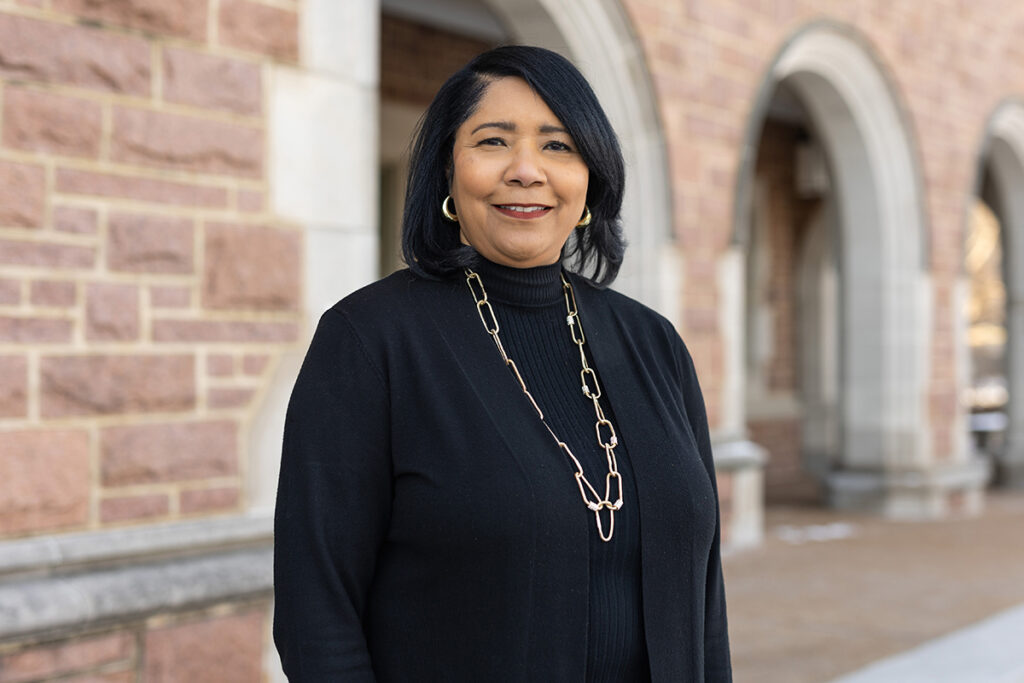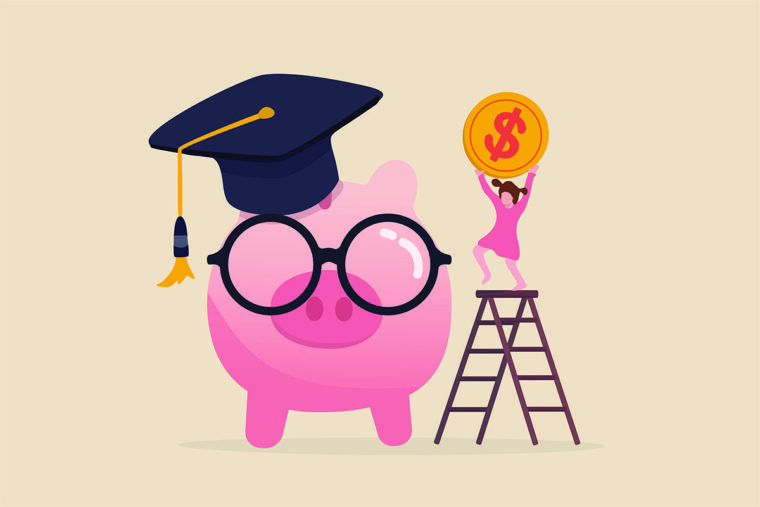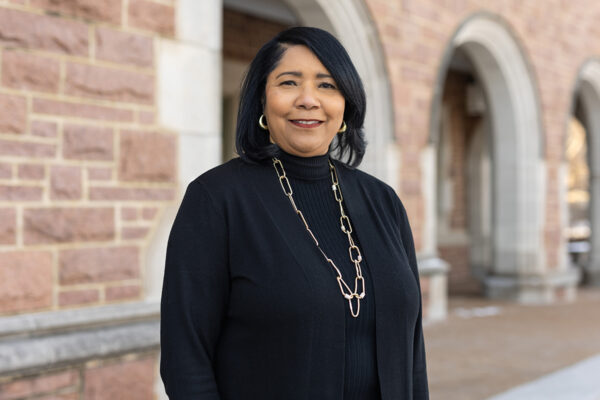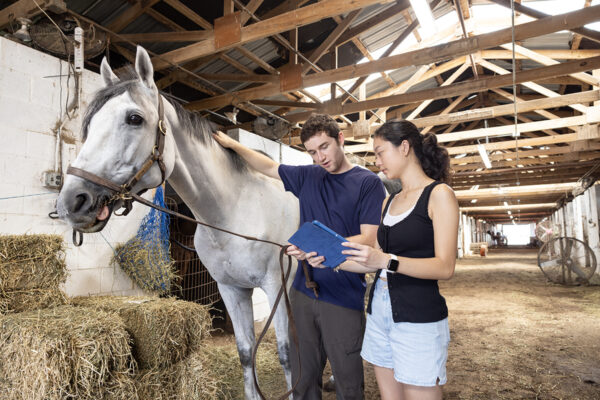Register for classes.
Find extra long bed sheets.
Stock up on microwave popcorn.
As new students get ready for college, Andrea Stewart-Douglas, Washington University in St. Louis’ inaugural director of student financial wellness programs, has one more item for their to-do list: Make a budget.
“For some students, this is the first time that they will be making financial decisions and choices on their own, so it’s important to come prepared,” Stewart-Douglas said. “It’s, of course, so much easier to spend money than to save it. But a budget will help you stay on track and meet your goals.”

Here, Stewart-Douglas provides some financial literacy tips for college students, from building a monthly budget to establishing credit.
Where is a good place to start if you have never created a budget before?
One of the most important things that we talk about with students is having those open and honest conversations with their parents or whomever is their support system to make sure that everyone is on the same page with who is paying for what and when. Who pays for a balance on a student’s bill? Books and supplies? Medications? Incidentals? Every student will have some unique costs that families should think about before arriving at college.
How can a student set a budget if they don’t know what expenses are coming their way?
Basic necessities in terms of their housing and meals are things a student can anticipate. But beyond that, students should consider what costs may be associated with the activities and organizations they want to join. A good place to start is your university’s financial aid website, which will often have those estimated charges. And I always recommend getting to know your financial aid officer.
It’s equally important to get your arms around what money and resources are available. Maybe you have a financial aid refund or a job. Or maybe you received money for graduation that you can draw down. But we recommend that you break that down over the course of the academic year so that you can stay on track and make adjustments quickly if need be.
It’s important to think about your goals. Is your goal to meet your out-of-pocket expenses or are you trying to save? Perhaps you are planning to take an unpaid internship over the summer or have other upcoming costs you need to set aside money for. And, of course, it’s always important to have some cushion for emergencies.
WashU and hundreds of other schools use the platform iGrad, which has user-friendly digital budgeting tools and information on a range of personal finance topics. There are also a lot of free apps, like Empower, that track spending, help with budgeting and provide additional resources.
What are the risks and benefits of opening credit cards in college?
When I was in college, I accumulated credit card debt, so I know the consequences of just putting that meal out or that new sweater on a card. But it’s important to establish credit early. A lot of the major credit card companies have what they call secured credit cards. The idea is that students who don’t have credit or are trying to improve their credit score put down a nominal amount of money, typically $200 to $500, which acts as a security. We encourage students to use the card for small purchases, specifically recurring ones like a Netflix subscription, so that they know that fixed amount will be charged against their card.
The key is to make sure that it’s a nominal amount and that you pay that balance in full every single month. By doing that, you are demonstrating responsible behavior and building a good reputation with that particular company. After a certain length of time that secured card turns into an unsecured card. That lending relationship gets reported with the credit bureaus, which will build your credit score. That matters because some institutions in the financial sector and in the government ask job candidates for a credit score or credit report. Your credit score also impacts your ability to rent apartments, purchase vehicles, secure loans for graduate school and other costs.
More and more schools like WashU are prioritizing financial well-being. What is behind that trend?
Whether it is a two-year community college or a four-year private school like WashU, higher ed institutions are definitely making a commitment to financial well-being. It’s not enough to prepare your students for careers if they leave totally unprepared to manage their finances once they leave campus. This goes hand in hand with the work at many schools to make sure that the basic needs of students are being met. Schools are finding innovative ways to elevate communication, establish peer mentorship and coaching programs, and provide new resources. Financial literacy is a life skill that we want every student, no matter their economic background, to graduate with.



